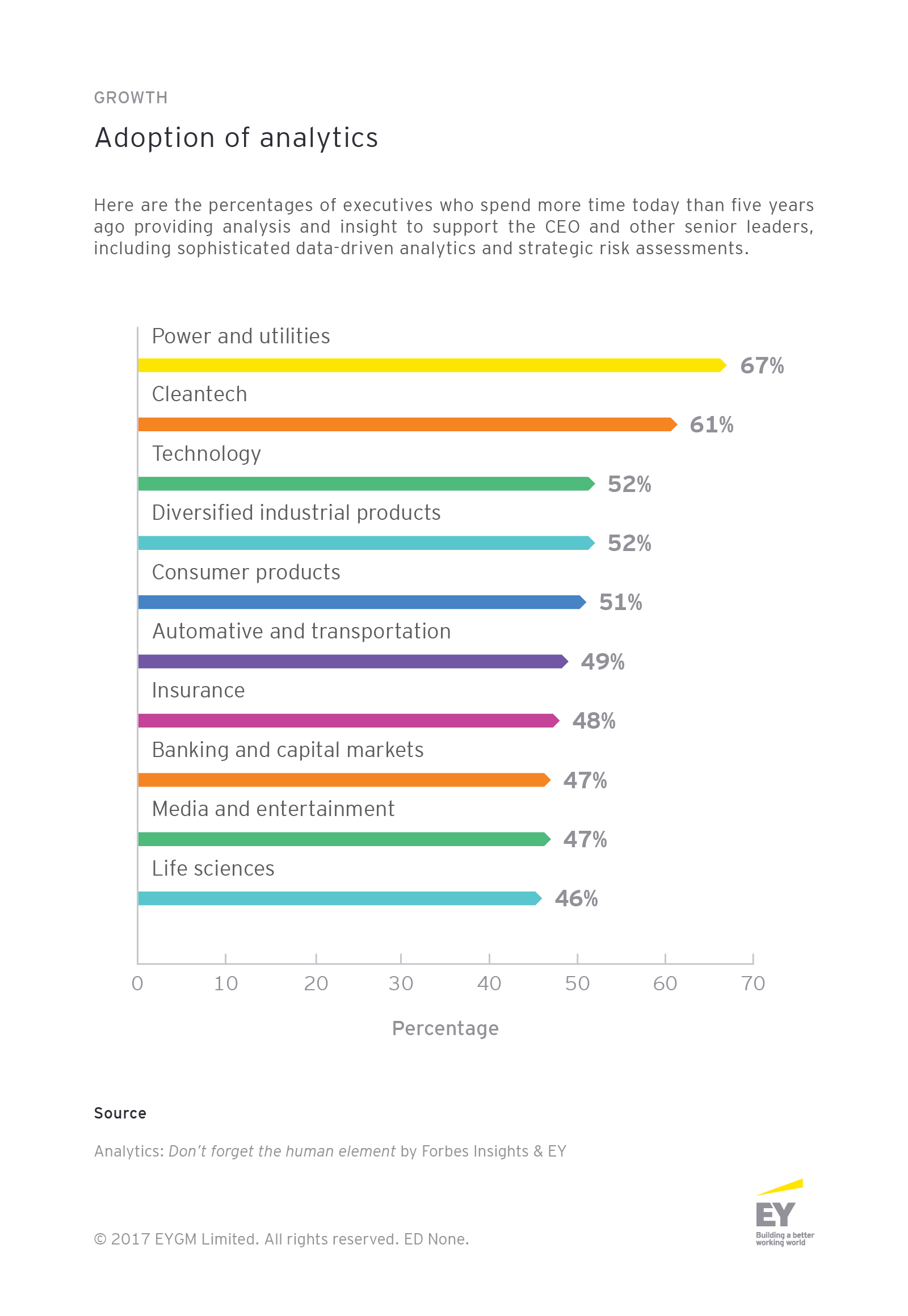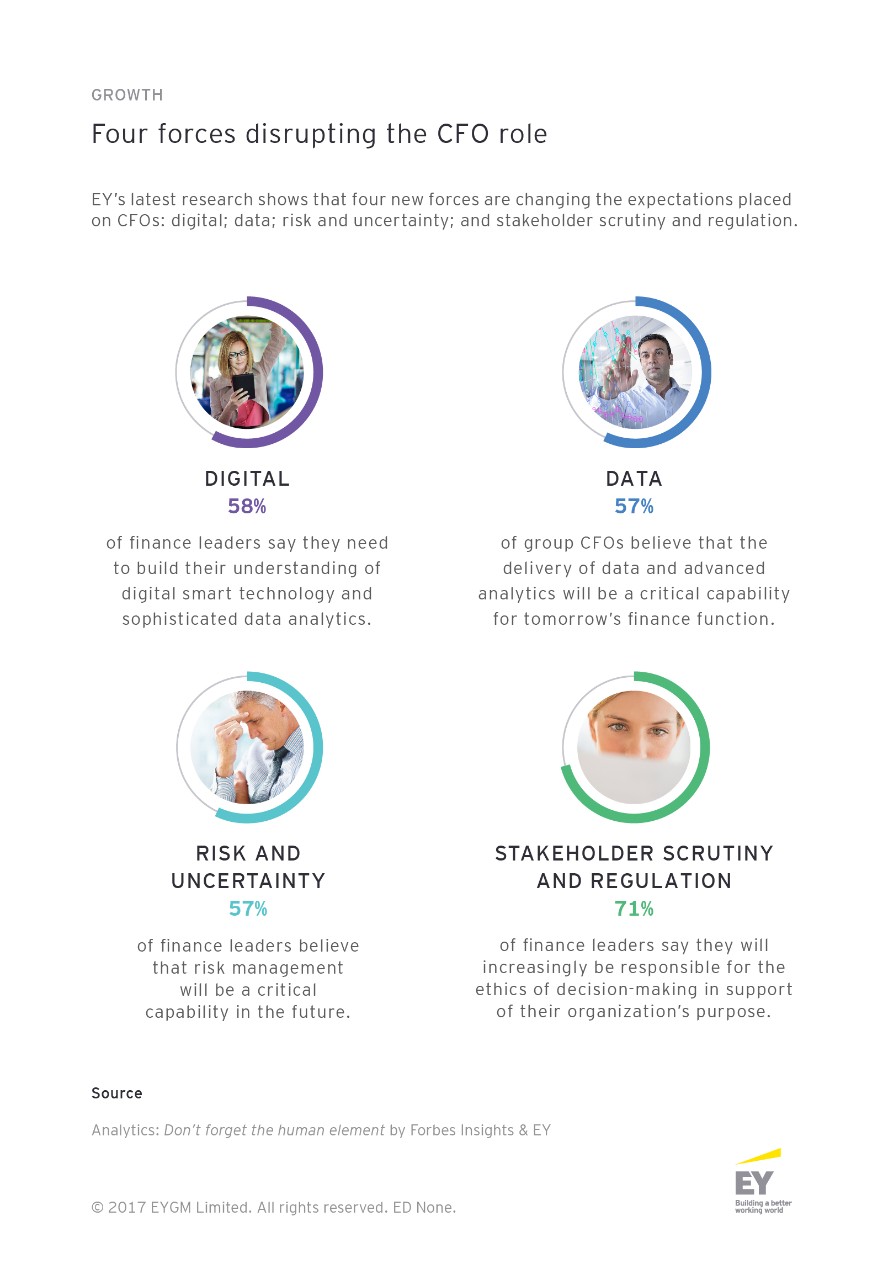
As CFOs become more focused on deriving strategic insight from data, they increasingly see the need for investment in the right people, as well as the right technology.
Over the past few years, many organizations have spent millions of dollars on technology to mine and manage data, but achieved disappointing returns.
This is often because they spend relatively little on drawing actionable insights out of the data and convincing people to use them. That calls for an analytics strategy that places human insight at its core, rather than technology.
In order to realize the potential of data and analytics for their organization, CFOs will need to focus increasingly on this crucial — and complicated — area.
The CFO’s role in building better data analytics
To translate this human-driven strategy into a long-term competitive advantage, CFOs will need to assess the potential disruption for the organization as a whole, and define the role that they and their finance function should play.
In some cases, this will mean providing input into finance-specific projects and workstreams, in others it may mean leading an enterprise-wide analytics capability – such as forecasting customer behavior through data to better estimate future revenues.
To help put data at the heart of long-term business success, the CFO must focus on six key areas:
- Making the case for data as integral to the business strategy by identifying proof of concept projects
- Aligning the analytics capability and delivery with priority business requirements
- Helping instill the right leadership and culture
- Providing the training to help individuals recognize decision biases – the psychological assumptions that often lead to poor decision-making
- Providing easy-to-use tools for users of data
- Transforming the analytics-based insights into actions, and aligning incentives, rewards and measurement accordingly

Extending the CFO’s influence: becoming a data catalyst
As a role that already spans across organizational silos, the CFO now has the opportunity to broaden out the use of analytics from the traditional finance functions of budgeting and forecasting – to the operational needs of the wider business.
“There’s no doubt that CFOs need to be a champion and driver for the use of analytics in all current core financial processes under his or her remit today,” says Chris Mazzei, Global Chief Analytics Officer, EY. “But you can start to extend out from that. Financial data, as well as other data, is a key input to many other business decision processes, whether it’s procurement, supply chain, operational-type decisions or risk management-type decisions.”
Viewing data from the perspective of a money- and data-conscious CFO should enable organizations to act on the insights and opportunities revealed by analytics as they occur – before it is too late.
“The CFO can be a driver of the application of analytics in many of those areas,” Chris Mazzei adds. “Not necessarily ‘owning’ that area, but acting as a catalyst for encouraging and driving the use of analytics in other business processes outside core finance.”
Resumen
CFOs are well-placed to make the case for deploying data analytics across the organization, adding a new strategic edge to the finance function.


